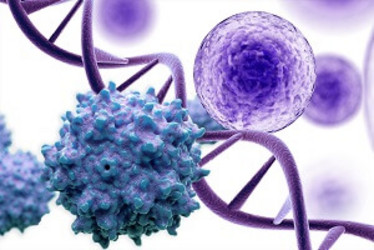Eliminating Bioconjugation Roadblocks
Bioconjugation of macromolecules to solid phase surfaces hasn’t always been the most straightforward of processes. But to take vaccine and drug development to a new level, we need to find a better approach.
Charlie Huang | | Opinion

Traditionally, vaccine and drug development has been a long, intensive process, partly due to difficulties associated with bioconjugation – the process that enables active macromolecules to be attached to solid-phase carriers or surfaces. Nearly all problems with bioconjugation can be traced back to the fact that not all biomolecules are compatible with the passive and covalent methods used in conventional approaches. Each type of biomolecule comes with its own set of challenges; the activity of some proteins, for example, can be impacted by passive and covalent conjugation, which can lead to irreversible chemical or structural modifications. These modifications can result in suboptimal conformation and presentation of target binding sites that limit assay performance and consistency. And when these processes are scaled up to manufacture multiple batches, inconsistent results are only amplified, creating reproducibility headaches for vaccine and drug developers. The fragile, complex, and inherently small nature of antigens can also be problematic, and some polysaccharides may not even have a functional group available for conjugation.
The fact of the matter is that currently used bioconjugation techniques are inherently slow. And in the midst of the current global health crisis, we can’t afford to be held back. We need to eliminate roadblocks that affect these processes to rapidly develop the vaccines and drugs that are so urgently needed.
In my view, we should not hesitate to explore novel or alternative technologies designed to overcome limitations associated with conventional techniques – specifically, surface technologies that enable stable conjugation by forming multiple chelation and coordination points with both the underlying surfaces and the biomolecule of interest. This has already been made possible using polymeric metal ions that bind to available electron-donating groups on synthetic surfaces and biomolecules. The use of these ions will be essential in the industry’s continued progress.
Already this rapid, single-step approach is being recognized for its ability to sustain biomolecule activity, as well as offer improved reproducibility and increased analytical sensitivity. Activated particles can remain coated and stable for up to 12 months, providing a welcome, simplified way forward for drug, vaccine, and high-sensitivity diagnostics development.
Confidence in such bioconjugation tools can also be derived from the growing catalog of diagnostic and therapeutic R&D efforts that have been made possible by these novel binding technologies. Adiponectin immunosensor development, tumor cell isolation, and extracellular vesicle research are just a few examples of the research areas benefiting from this approach. The advancement has also accelerated the testing of carbohydrates in vaccine development, as attractive immune adjuvants that activate T helper cells. Previously, pH and buffer optimization were required to improve the conjugation efficiency of polysaccharides binding to multiplex magnetic beads. But this compromised polysaccharide binding activity – a common problem experienced when working with many carbohydrates. However, when using the nanosized molecular glue approach, polysialic acid – a polysaccharide commonly used in the field of vaccine research – bound to activated beads with an intensity far superior to that enabled by passive binding, paving the way for more efficient development of vaccines that leverage this carbohydrate.
It would be hard to find a more pertinent example of successful conjugation using this approach than the nucleocapsid protein (N-protein) of the SARS-CoV-2 virus. Recombinant SARS-CoV-2 N-protein is a critical antigen for developers pursuing diagnostic immunoassays, alongside other viral proteins, such as Spike S1 and Spike RBD (receptor binding domain). A recent study used the technology to conjugate recombinant Spike RBD of selected SARS-CoV-2 variants. It sought to understand the impact of COVID-19 vaccination on the levels of neutralizing antibodies against these RBD variants, and demonstrated that the nanosized molecular glue approach to bioconjugation provides a rapid and effective tool for SARS-CoV-2 multiplex immunoassay development for vaccine study (1).
For a long time, developers of vaccines, immunoassays and antibody-based drugs have battled with problematic proteins and biomolecules that were incompatible with conventional bioconjugation methods. To usher in a new era of rapid vaccine and biopharmaceutical development, however, we need to harness technology that allows us to break down the hurdles associated with bioconjugation and resultant delays in vaccine and drug development. By employing rapid and reliable bioconjugation solutions, there is a better chance that vaccines and drugs can be developed with the urgency required to get efficacious products to patients sooner, and combat any future pandemics.
Leverage Proven Technology to Speed Path to FIH

GPEx® Lightning is a fast, flexible way to shorten the path to production of phase 1 material. During this talk, we share the latest data leveraging GPEx® Lightning to generate highly stable, highly productive cell pools.
- M Becker et al., “Immune response to SARS-CoV-2 variants of concern in vaccinated individuals” (2021). Available at: https://bit.ly/3cZy7oH.



















